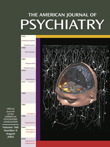Psychiatric Resident Conceptualizations of Mood and Affect Within the Mental Status Examination
Abstract
OBJECTIVE: To explore the ways in which psychiatry residents conceptualize the terms “mood” and “affect,” a 14-item questionnaire was sent to residency programs in New York. METHOD: The questions consisted of possible definitions of mood and affect; all questions required a “true” or “false” response. Residents (N=99) were asked how they viewed mood and affect from a temporal perspective (i.e., sustained versus momentary) and in terms of an objective-subjective (or external-internal) dichotomy. RESULTS: There were inconsistencies in the temporal view of mood (said to be sustained by 60.6% and momentary by 50.5%) and affect (“pervasive” by 26.3% and “momentary” by 66.3%). Residents overwhelmingly defined mood as being subjective and internal and affect as being objective and external. CONCLUSIONS: If mood and affect are to be viewed from both perspectives, psychiatrists must infer the enduring internal emotional tone (mood) of a patient over an entire interview.



